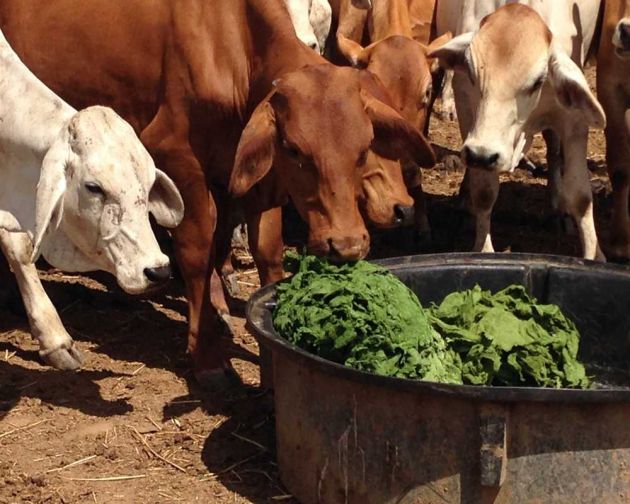Fletcherview Research
Research
- Aboriginal and Torres Strait Islander in Marine Science
- Courses
- Future Students
- Current Students
- Research and Teaching
- Partners and Community
- About JCU
- Reputation and Experience
- Celebrating 50 Years
- Academy
- Anthropological Laboratory for Tropical Audiovisual Research (ALTAR)
- Anton Breinl Research Centre
- Agriculture Technology and Adoption Centre (AgTAC)
- Living on Campus
- How to apply
- Advanced Analytical Centre
- Alumni
- AMHHEC
- Aquaculture Solutions
- AusAsian Mental Health Research Group
- ARCSTA
- Area 61
- Association of Australian University Secretaries
- Australian Lions Stinger Research
- Australian Tropical Herbarium
- Australian Quantum & Classical Transport Physics Group
- Boating and Diving
- JCU-CSIRO Partnership
- Employability Edge
- Clinical Psychedelic Research Lab
- Centre for Tropical Biosecurity
- Career Ready Plan
- Careers at JCU
- Careers and Employability
- Chancellery
- Centre for Tropical Bioinformatics and Molecular Biology
- CITBA
- CMT
- CASE
- College of Business, Law and Governance
- College of Healthcare Sciences
- College of Medicine and Dentistry
- College of Science and Engineering
- CPHMVS
- Centre for Disaster Solutions
- CSTFA
- Cyber Security Hub
- Cyclone Testing Station
- The Centre for Disaster Studies
- Daintree Rainforest Observatory
- Defence
- Discover Nature at JCU
- Research Division
- Services and Resources Division
- Education Division
- Elite Athletes
- eResearch
- Environmental Research Complex [ERC]
- Estate
- Fletcherview
- Foundation for Australian Literary Studies
- Gender Equity Action and Research
- General Practice and Rural Medicine
- JCU Orientation
- Give to JCU
- Governance
- Art of Academic Writing
- Art of Academic Editing
- Graduate Research School
- Graduation
- Indigenous Education and Research Centre
- Indigenous Engagement
- Indigenous Legal Needs Project
- Inherent Requirements
- IsoTropics Geochemistry Lab
- IT Services
- International Students
- Research and Innovation Services
- JCU Eduquarium
- JCU Heroes Programs
- JCU Webinars
- JCU Events
- JCU Global Experience
- JCU Ideas Lab
- JCU Job Ready
- JCU Motorsports
- JCU Prizes
- JCU Sport
- JCU Turtle Health Research
- Language and Culture Research Centre
- CEE
- LearnJCU
- Library
- Mabo Decision: 30 years on
- MARF
- Marine Geophysics Laboratory
- New students
- Off-Campus Students
- Office of the Vice Chancellor and President
- Virtual Open Day
- Orpheus
- Open Day
- Outstanding Alumni
- Parents and Partners
- Pathways to university
- Pharmacy Full Scope
- Planning for your future
- Placements
- Policy
- PAHL
- Publications
- Professional Experience Placement
- Queensland Research Centre for Peripheral Vascular Disease
- Rapid Assessment Unit
- RDIM
- Researcher Development Portal
- Roderick Centre for Australian Literature and Creative Writing
- Safety and Wellbeing
- Scholarships
- Contextual Science for Tropical Coastal Ecosystems
- Staff
- State of the Tropics
- Strategic Procurement
- Student Equity and Wellbeing
- Student profiles
- SWIRLnet
- TARL
- TESS
- TREAD
- TropEco for Staff and Students
- TQ Maths Hub
- TUDLab
- Unicare Centre and Unicampus Kids
- UAV
- VAVS Home
- Work Health and Safety
- WHOCC for Vector-borne & NTDs
- Media
- Copyright and Terms of Use
- Australian Institute of Tropical Health & Medicine
- Pay review
We offer quality, industry-standard livestock handling facilities for weighing, scanning and collecting samples.
The yards are designed for the optimal student learning experience and for ease of conducting research. We can easily demonstrate our procedures and processes to classes, groups and visitors. We've also ensured that mains power supply is connected to our stockyards for running electrical equipment.
Small paddocks in close proximity to the yards allow for intensive studies when livestock need to be handled or monitored regularly. These paddocks are used for pasture improvement research when specific areas need to be resting or when grazing actively needs to be monitored.
We have 3G and 4G phone coverage to 90% of the property, allowing remote sensors and equipment to transmit data to the Internet.
Our current research projects include a range of cattle reproduction and fertility trials, as well as pasture trials. We work closely with James Cook University’s Australian Institute of Tropical Veterinary and Animal Science to develop technology-based solutions for the challenges associated with grazing in the dry tropics.
- Animal production
- Animal nutrition
- Pasture monitoring
- New grazing pastures

Getting results
Our central location and industry-standard management of cattle accurately represent commercial properties in the region.
More than just a cattle station, Fletcherview’s size and diversity of land types, plant and animal species attracts researchers in animal immunology, animal nutrition, biology, botany, geology, and tropical agriculture.
Research conducted at Fletcherview has made a real difference to the world. JCU’s Centre for the Macroalgal Resources and Biotechnology (MACRO) have developed a feedstock solution to cut cattle methane production. With a single cow producing between 70 and 120kg of methane per year, climate change is beefed up by the cattle industry. MACRO partnered with Meat and Livestock Australia to experiment with different types of algae to absorb waste products. During clinical trials Fletcherview’s cows got some new greens in their diet, and methane production dropped by 99 per cent.